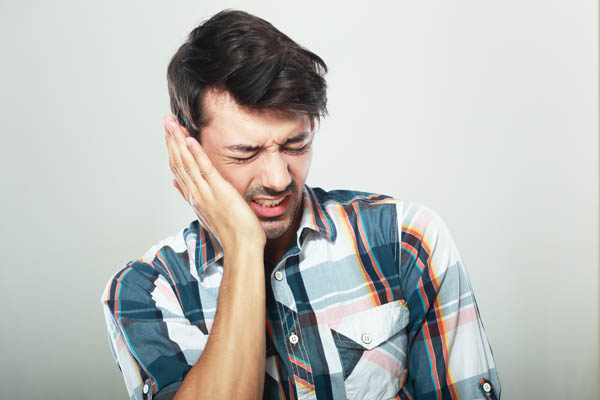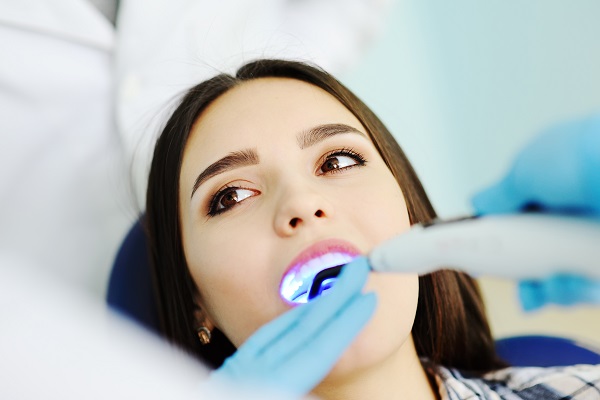Medication Treatments for TMJ

TMJ disorder is not a pleasant condition and can cause pain and discomfort. Although there are many contributing factors to TMJ disorder, there are different treatment options to correct and treat it, including medications. Sometimes symptoms of TMJ disorders disappear without treatment, but if they do not, you may get prescriptions to relieve the condition.
Medication treatments for TMJ disorder
Patients need to confirm with their healthcare provider before starting any medication, even if it is over-the-counter. Some medications have side effects such as weight gain or drowsiness, and some may interfere with any other medication the patient is using.
The dentist will probably have the patient try an over-the-counter medication before prescribing a drug. If the over-the-counter meds are not effective enough to alleviate jaw pain and other symptoms of TMJ disorder, the doctor will recommend a more powerful medication to ease the condition.
Over-the-counter medications
Acetaminophen can help relieve jaw pain momentarily, but it does not treat inflammation. Nonsteroidal anti-inflammatory drugs (NSAIDs) are effective for controlling both inflammation and jaw pain in TMJ temporarily. A type of NSAID drug is ibuprofen. Anti-inflammatory drugs are usually recommended to relieve pain and swelling if the inflammation of the TMJ is causing soreness.
Prescription medications
Muscle relaxants may be used sometimes to relieve jaw pain and discomfort caused by a TMJ disorder. They function by relaxing the muscles in the face and jaw, and they help reduce muscle spasms. Since muscle relaxants are powerful drugs, patients will usually only have to take them for some days or a few weeks at a time. Diazepam is an example of a muscle relaxant used for treating the condition.
Tricyclic antidepressants can help alleviate discomfort caused by TMJ disorder. Patients do not need to have a history of depression to get an antidepressant. These drugs act by altering how the body perceives pain. An example of a tricyclic antidepressant is amitriptyline.
Corticosteroids may be recommended in case of severe jaw pain and inflammation. However, they are hardly ever used for treating TMJ disorders. If the patient needs them, the corticosteroid will be injected into the joint to provide substantial relief temporarily. An example of a corticosteroid is triamcinolone.
Botulinum toxin, or Botox, is another option for treating pain related to TMJ. Many experts believe injecting a small dose of Botox into the jaw muscles can relieve symptoms of the condition.
A point to consider
It is important to follow the recommendations for prescription drugs to prevent unwanted side effects. Patients need to inform their dentist immediately if they notice any adverse side effects. They may adjust the current drug or recommend alternative medications.
Do you suffer from TMJ disorder?
The medications to use for managing TMJ disorder depend on the severity of the symptoms. Consult a dentist to know the appropriate medication for you. Also, be aware that medications are not a cure for TMJ disorder, but they can remarkably relieve the pain and discomfort associated with this condition.
Request an appointment here: https://www.cedargrovedentalgroup.com or call Cedar Grove Dental Group at (973) 857-0567 for an appointment in our Cedar Grove office.
Check out what others are saying about our dental services on Yelp: TMJ Dentist in Cedar Grove, NJ.
Recent Posts
When a patient has dental implants, follow-up visits are important. Many patients need to have replacement teeth for a variety of reasons. You may have gotten them because you lost several teeth due to a traumatic accident, or you may have been on medication that caused your teeth to deteriorate. Regardless of how you lost your…
A dental fillings is one of the main procedures performed on patients. Everyone should see their dentist twice a year. It is during these visits where most oral health issues are detected. If you see your dentist routinely, they can treat these issues right away before they become more severe. Usually, a dentist discovers a…
Emergency dentists treat a range of oral health concerns, including toothaches. A minor toothache may not be an emergency, but a severe toothache that lingers for an extended period of time or suddenly worsens likely requires immediate dental care to prevent any additional oral health concerns and ensure ideal long-term oral health. This review highlights how…
Thinking about getting an oral cancer sceening? Oral cancer screenings are a very important part of general dental care as they ensure the health of patient's oral cavity. They involve a few steps that are typically painless. Understanding the process of an oral cancer screening can be helpful for patients who are not sure what…


